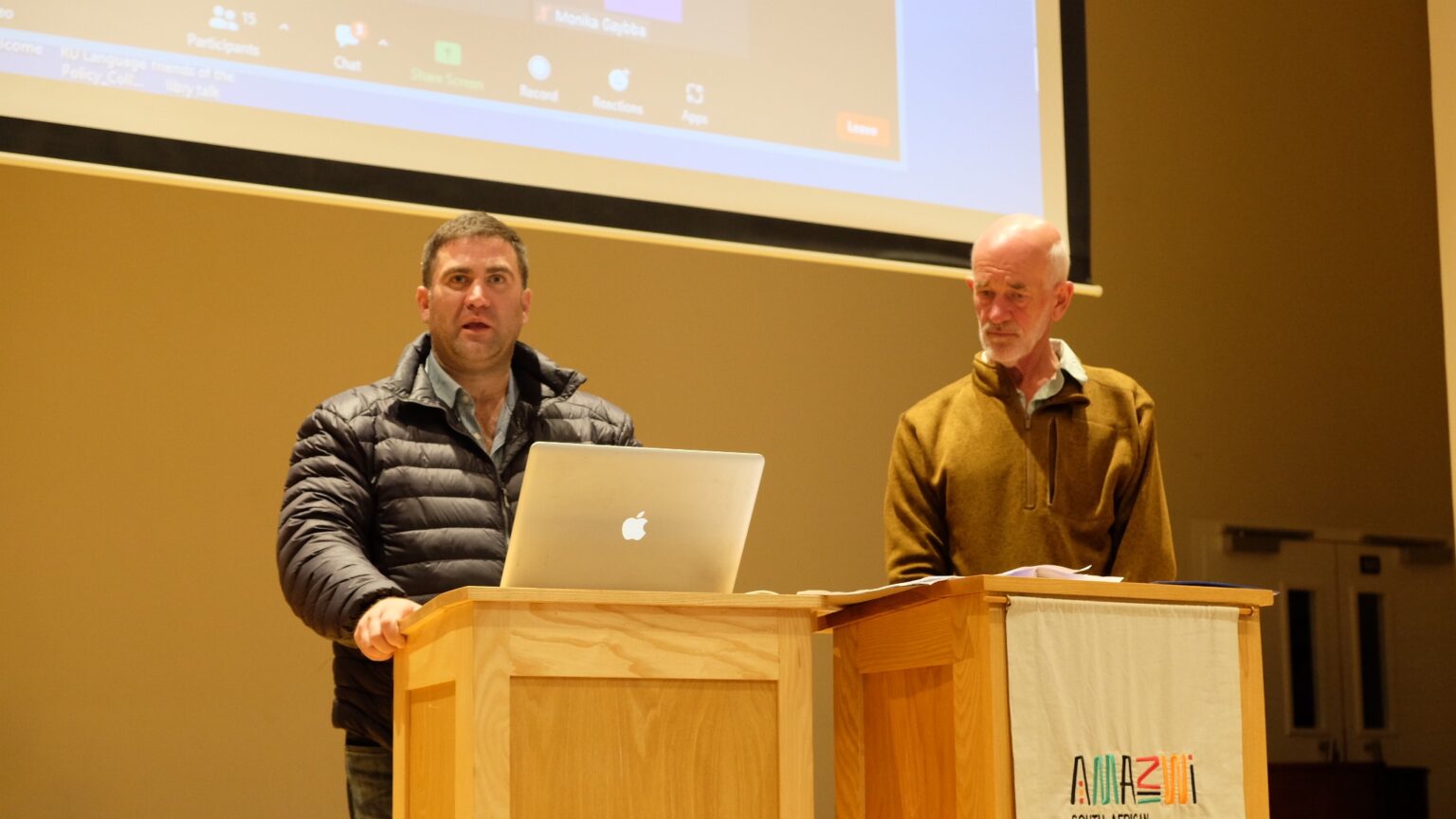By ROD AMNER and TOTO TSARNEBA
Members of the Makana Residents Association (MRA) and the Grahamstown Business Forum (GBF) have resolved to merge into a nonprofit umbrella company with a new name.
The unanimous decision was made at a joint meeting of the two civic organisations at Amazwi on 31 August.
MRA chairperson Sally Smith said the new organisation would continue the fight to hold public officials accountable, represent the interests of citizens, fight social injustice, and work for the city’s economic development.
A new constitution will be drafted and presented to a combined meeting by MRA and GBF for adoption. Both the MRA and GBF will be dissolved when the new nonprofit company is registered. New office bearers will be appointed, and a new business account will be created.
GBF chairperson Richard Gaybba said the functions of both organisations would be run under the umbrella nonprofit organisation. Neither organisation was absorbing the other.
Gaybba said the merger would allow for the efficient pooling of scarce skills and financial resources. “It’s about capacity – the new organisation would be more direct about action.”
“I’ve spent five years with engagements. And whilst I think parties should always talk, we must drive change. We know what the problems are – not only do we have a disclaimer, in the Makana Municipality audit opinion, we’ve got a substantial harm opinion, which is the worst thing you can get.
“It’s something that we might not be able to change, but it’s certainly worth the fight. We all love Makana – that’s why we are here. And this organisation will help us focus on driving change.”
Commenting on the merger, MRA stalwart Philip Machanick said that while there may be certain areas where residents and some kinds of business might conflict, he would “rather manage that than spread ourselves too thin”.
“We need to find a way to get ourselves more focused to have less duplication of effort – and at the same time realise that there could be some differences,” Machanick said.
Commenting on the strategy and tactics of the new organisation, MRA secretary Tim Bull said that in contrast to using litigation as a strategy, organisations like Makana Revive and many other individuals and companies were repairing potholes, which all helped to keep the town afloat.
“Fixing potholes and cleaning rivers helps get citizens involved and feel they’re doing something to help. We’re not wholeheartedly behind one method or another.
“Some people are against litigation as a method. But, our court order did get the municipality to pay Eskom for three years.”
Sadly, after Makana’s Chief Financial Officer and former mayor Mzukisi Mphalwa left in 2021, Makana again failed to pay the Eskom debt, Bull said. “[The Eskom debt] is back into a disaster zone now as it has ballooned to at least R50 million.”
“But, we are not going to give up. So we keep fighting to make a change. We will use different approaches: some will be litigation, some will be direct action, and some will be engagement with the municipality.
“Engagement has been incredibly hard in the last four years. We’ve ended up with a Municipal Manager [Moppo Mene] who should never have been appointed. As I’ve said to his face, his only agenda is to draw his salary at the end of the month.
“He puts off decisions and doesn’t manage. It’s been a disaster because he lets everybody carry on exactly as they want. There is no accountability,” Bull said. The Auditor General tasked Mene to account for tens of millions in fruitless, wasteful and irregular expenditure. “But, after he’d looked at it, he decided no one was responsible for it.”
“Section 32 of the Municipal Finance Management Act potentially makes [the Municipal Manager]personally liable for those costs, but it’s never enforced,” he added.
“There are a lot of things happening now which are now worse in some ways than they were when Makana went under administration in 2014. But these are all things I think a combined organisation can do better than separate organisations – that’s the key,” Bull said.
Concerns were raised about some ‘toxic’ businesses which might not follow the rules and regulations.
In response, Gaybba said the GBF litigated against a local business that wasn’t following the Liquor Act and made lots of noise that disturbed the residents.
“The municipality took them to court, but the court case didn’t go anywhere. The GBF enforced compliance. In extreme cases, we do act. And we act at our own cost. So hopefully, that allays those fears,” he said.


